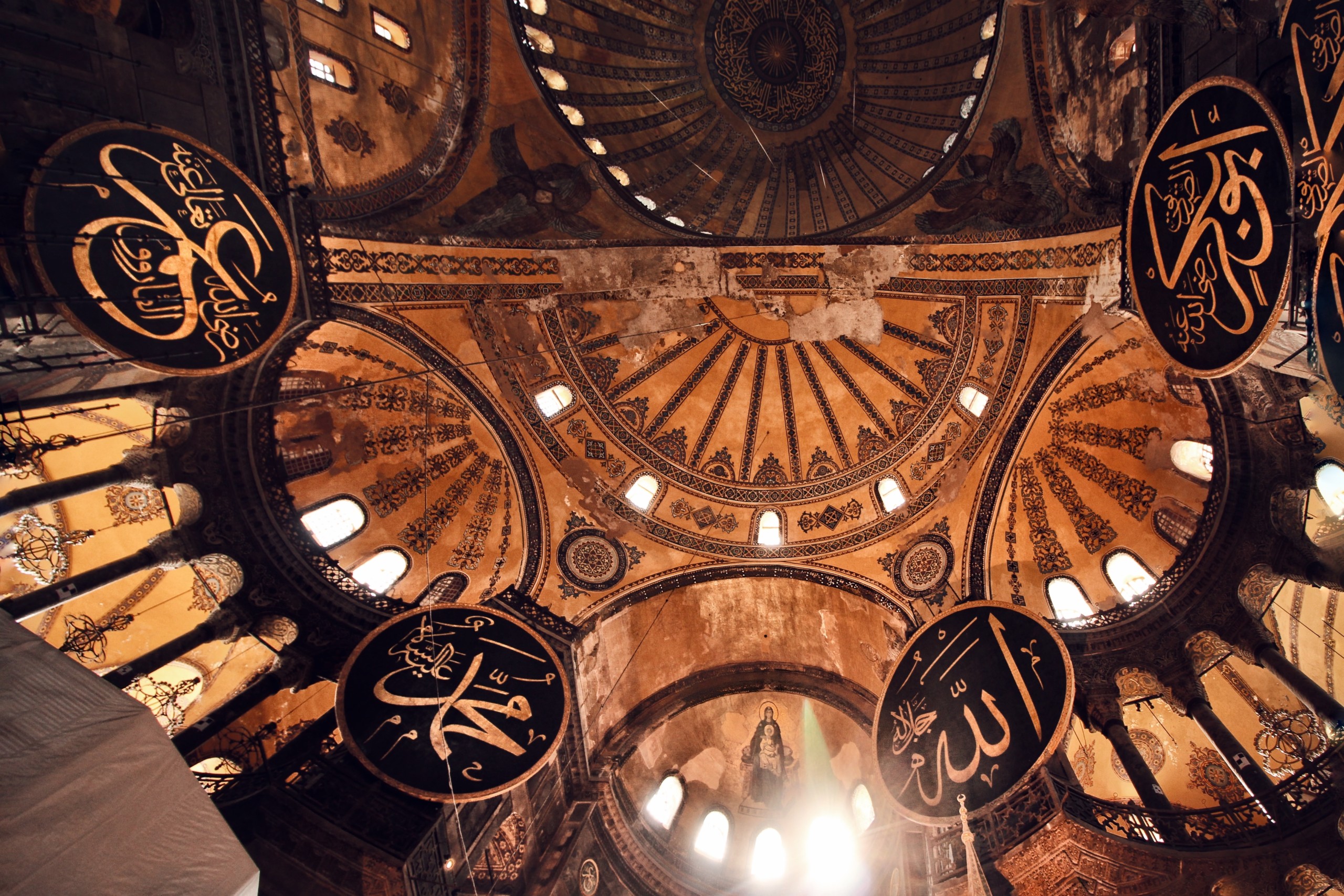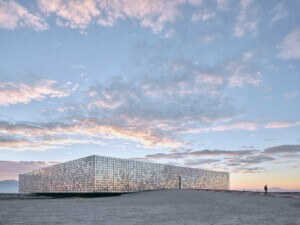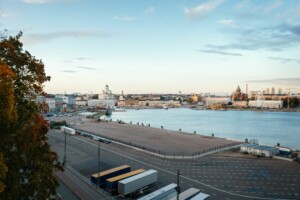UPDATE: 7/10/20: Just hours after a court ruling was announced, Turkish President Recep Tayyip Erdogan officially signed a decree that orders Hagia Sophie, now a museum, to be turned back into a mosque.
Hagia Sophia, the 1,483-year-old Greek Orthodox Christian cathedral-turned-Ottoman mosque-turned-museum in the heart of Istanbul could potentially be reconverted back into an active mosque if Turkish President Recep Tayyip Erdoğan, an anti-democratic populist gets his way. Listed as a UNESCO World Heritage Site in 1985 and often referred to as one of the many eighth wonders of the world, the soaring 6th-century masonry structure, the world’s largest building at the time of its completion, has been a museum since 1935, a pointedly secular usage that Erdoğan once decried as being a “very big mistake.”
Holding regular religious services at the site would be in direct violation of UNESCO conservation rules that stipulate that the organization needs to approve any sort of major shift such as, in this case, transitioning from a nonsecular museum into an active mosque (these rules have already been breached by Erdoğan). Twenty percent of UNESCO World Heritage Sites have spiritual or religious connections.
The move, not surprisingly, has prompted international outrage—particularly in Greece, Russia, and the United States—and left Turkey’s population largely split.
“The United States views a change in the status of the Hagia Sophia as diminishing the legacy of this remarkable building and its unsurpassed ability—so rare in the modern world—to serve humanity as a much-needed bridge between those of differing faith traditions and cultures,” said U.S. Secretary of State Mike Pompeo in a press release.
“The Hagia Sophia is the property of Turkey, like all our cultural assets located on our land,” Turkish Foreign Ministry spokesman Hami Aksoy shot back in a statement.
Greece has been particularly vocal in its dissent. As reported by Reuters, governmental spokesperson Stelios Petsas warned in a recent news conference that shelving Hagia Sophia’s secular status could potentially lead to a “huge emotional chasm” between Turkey, which is over 80 percent Sunni Islam, and its Christian neighbors as well as other Christian-majority nations around the world. Critics claim the move has little to do with religion or heritage and is more a naked political ploy for Erdoğan and his party to maintain a hold on support from his increasingly diminishing conservative base.

The conversion of Istanbul’s tourist-luring masterwork of Byzantine architecture back into a mosque, which was its function from 1453 until shortly after the collapse of the Ottoman Empire, has percolated for years now. That reality is now closer than ever as the world awaits the results of a final ruling on the matter from Turkey’s most powerful administrative court, the Council of the State. Per a tweet published by Turkish journalist Mehmet Ardıç, the court has indeed decided—following a 17-minute hearing held earlier this month—to overturn the 1934 ruling by Kemal Ataturk, the secularist founding father of the modern Republic of Turkey, that commanded the building be stripped of its religious usage and be transformed into a national monument and museum.
As detailed by the New York Times, Erdoğan, a pious Muslim, will be tasked with making the final decision with regard to Hagia Sophia’s fate after the court makes a formal announcement on its verdict in the coming days. “Mr. Erdogan, who comes from a conservative Muslim tradition, has overseen a steady chipping away of the secular rules of the Ataturk republic, with a concerted effort to revive the glories of the Ottoman era,” wrote the Times.
In addition to foreign leaders, preservationists, art historians, and the operators of tourism companies dedicated to showcasing the Byzantine splendors of Hagia Sophia—Istanbul’s most visited tourist site—have sounded the alarm.
“I am more interested in preserving Hagia Sophia as a cultural treasure,” Zeynep Ahunbay, a conservation architect with professional ties to the site, tells the Times. “The best way to preserve and present it is by the museum function.”
While there’s no indication yet that Hagia Sophia would be closed off altogether to non-worshippers, access to areas of the former cathedral could be restricted and some of its most crowd-drawing attributes, including its famed Christian mosaics and frescos which took years to restore after the fall of the Ottoman Empire, could once again be concealed in accordance to Muslim law.











